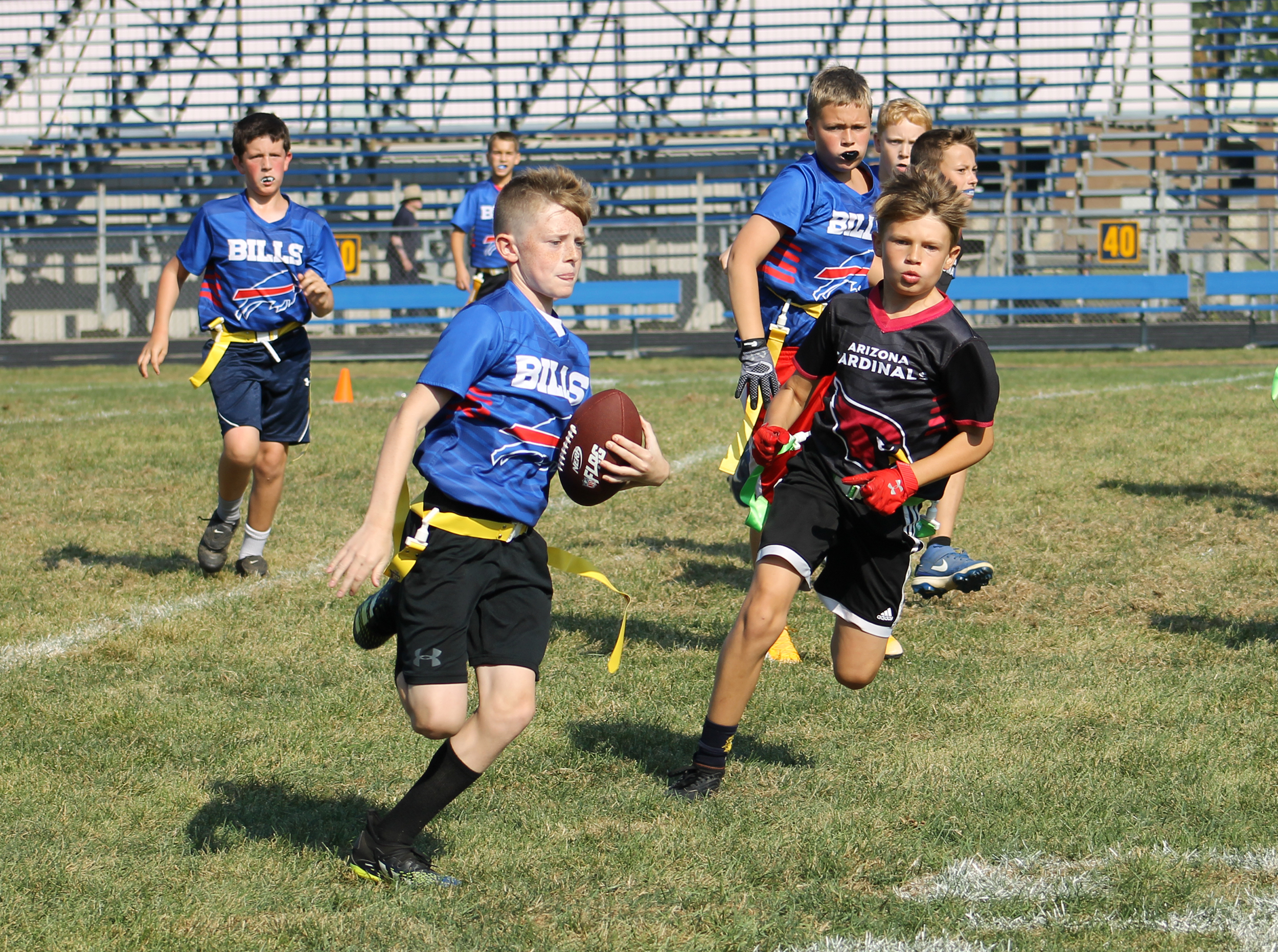
Good Sportsmanship for Youth Coaches
Good sportsmanship is the foundation of youth sports, and as a coach, you have the power to set the tone for your team.


Youth flag football has become a popular choice for children and parents alike due to its emphasis on safety, skill-building, and fun. Offering a dynamic alternative to tackle football, it gives kids the opportunity to engage in a team sport while minimizing the risks associated with contact sports.
One of the most significant benefits of youth flag football is its non-contact nature. Unlike tackle football, players in flag football are not required to physically tackle opponents to stop a play. Instead, they pull a flag attached to the ball carrier’s waist, reducing the likelihood of injury. This makes flag football a safer choice for young children who are still developing their coordination, strength, and awareness of the game.
Parents who are concerned about the potential injuries associated with tackle football, such as concussions and broken bones, often find comfort in knowing that flag football provides a safer introduction to the sport. With fewer risks involved, kids can focus more on enjoying the game and improving their skills.
Flag football teaches many of the same fundamentals as tackle football, including passing, catching, route running, and defensive positioning. Kids learn how to read plays, execute strategies, and develop a strong understanding of the game’s mechanics. These skills are essential for young athletes who may want to transition to tackle football in the future or pursue other sports.
Because the emphasis is on agility, footwork, and hand-eye coordination rather than physical strength, players in flag football have the opportunity to hone these technical skills early on, laying a solid foundation for any sport they choose to play down the road.
Youth flag football provides a great environment for teaching kids the value of teamwork. Working together on offensive and defensive plays encourages communication, cooperation, and trust among teammates. Players learn that success on the field requires collective effort, not just individual talent.
Beyond the physical benefits, flag football fosters friendships and camaraderie. Kids develop social skills as they work toward common goals, learn to handle competition, and celebrate achievements together. Being part of a team helps build confidence and a sense of belonging, which is especially important for children at a young age.
Flag football is one of the most inclusive youth sports. Its non-contact nature allows children of different sizes, skill levels, and athletic abilities to participate equally. Whether your child is new to sports or already experienced, flag football offers an environment where everyone can play and have fun.
In addition, flag football requires minimal equipment—usually just a set of flags, a football, and a uniform—making it accessible to families. Many recreational leagues and schools offer affordable flag football programs, so it’s easy for kids to get involved without a significant financial burden.
With childhood obesity and screen time on the rise, flag football offers a fun way for kids to stay active and healthy. The game requires constant movement, with players running, dodging, and changing directions quickly. These activities build cardiovascular endurance, improve agility, and strengthen muscles.
Regular participation in flag football also instills a love for physical activity, which can translate into a lifelong habit of staying active and healthy. Kids who enjoy flag football often seek out other sports or physical pursuits, helping them maintain a balanced and active lifestyle.
Youth flag football offers a less intense introduction to football compared to tackle leagues, creating an environment where kids can focus on having fun rather than dealing with high pressure. Coaches often emphasize skill development, sportsmanship, and enjoyment, which allows kids to play the game without the stress of aggressive competition.
This approach fosters a love for the sport, keeping kids engaged and excited to return each season. Whether they play for fun or with aspirations to move on to tackle football, flag football helps young athletes build confidence and enjoy the game without the intense demands.
For kids who are interested in playing tackle football down the line, flag football serves as a great stepping stone. It allows them to understand the rules and strategies of the game without the physical risks. By learning how to pass, catch, run plays, and defend in flag football, players develop football IQ and field awareness that will make transitioning to tackle football smoother when they’re ready.
Youth flag football is an excellent option for children who want to experience the excitement of football while staying safe and having fun. With its focus on safety, skill development, teamwork, and inclusivity, flag football provides young athletes with a well-rounded introduction to the game. Whether your child plays for fun or as a gateway to tackle football, flag football fosters a positive, active, and rewarding experience for kids at any level.

Good sportsmanship is the foundation of youth sports, and as a coach, you have the power to set the tone for your team.

Flag football is one of the fastest-growing sports in the world, combining the strategy of traditional football with a focus on speed, teamwork, and fun.

Maximizing your child’s athletic ability is about more than just excelling in sports; it’s about fostering their physical, mental, and emotional growth.

Managing a difficult situation in youth sports requires patience, empathy, and a focus on maintaining a positive environment for everyone involved.